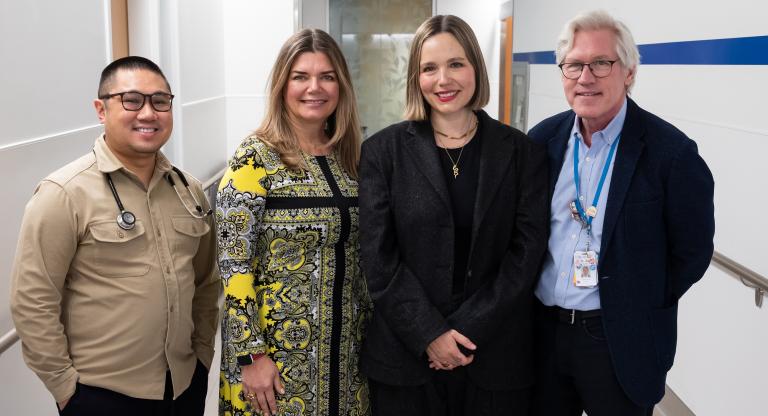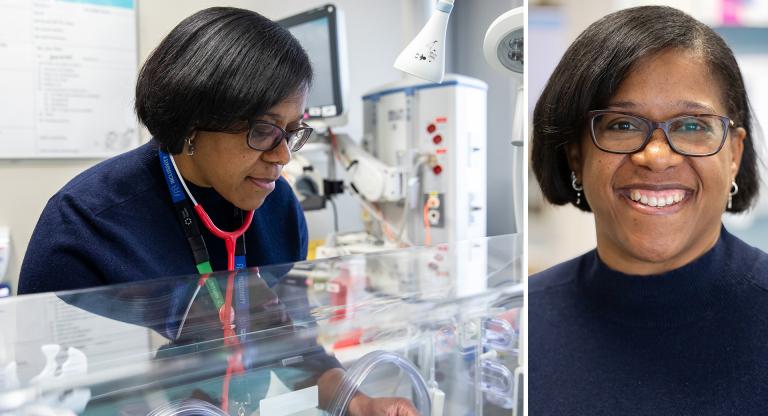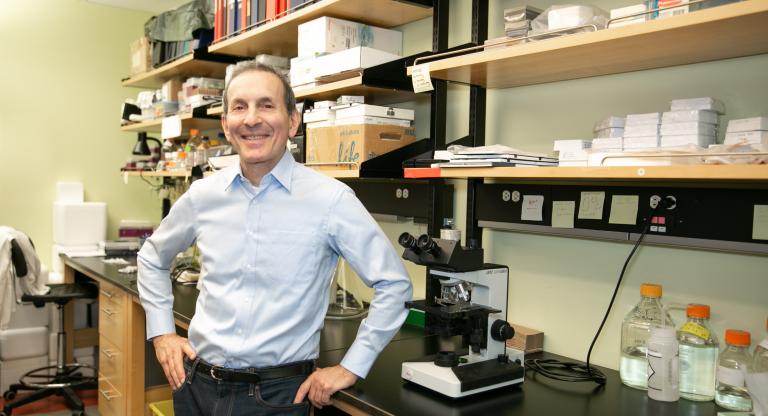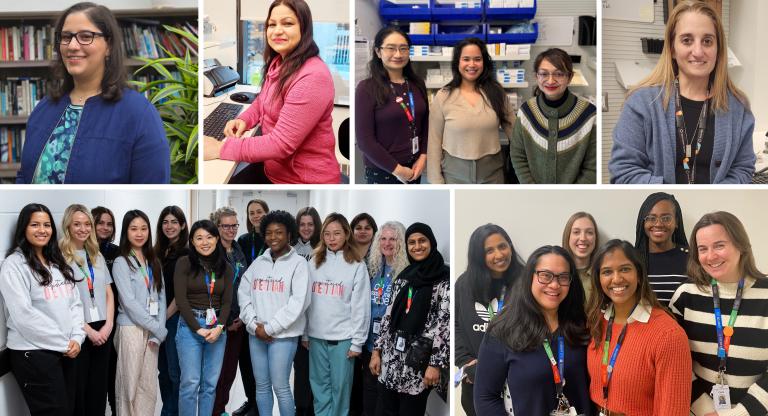Advancing sarcoma care and research: An interview with Mount Sinai's newest staff oncologists
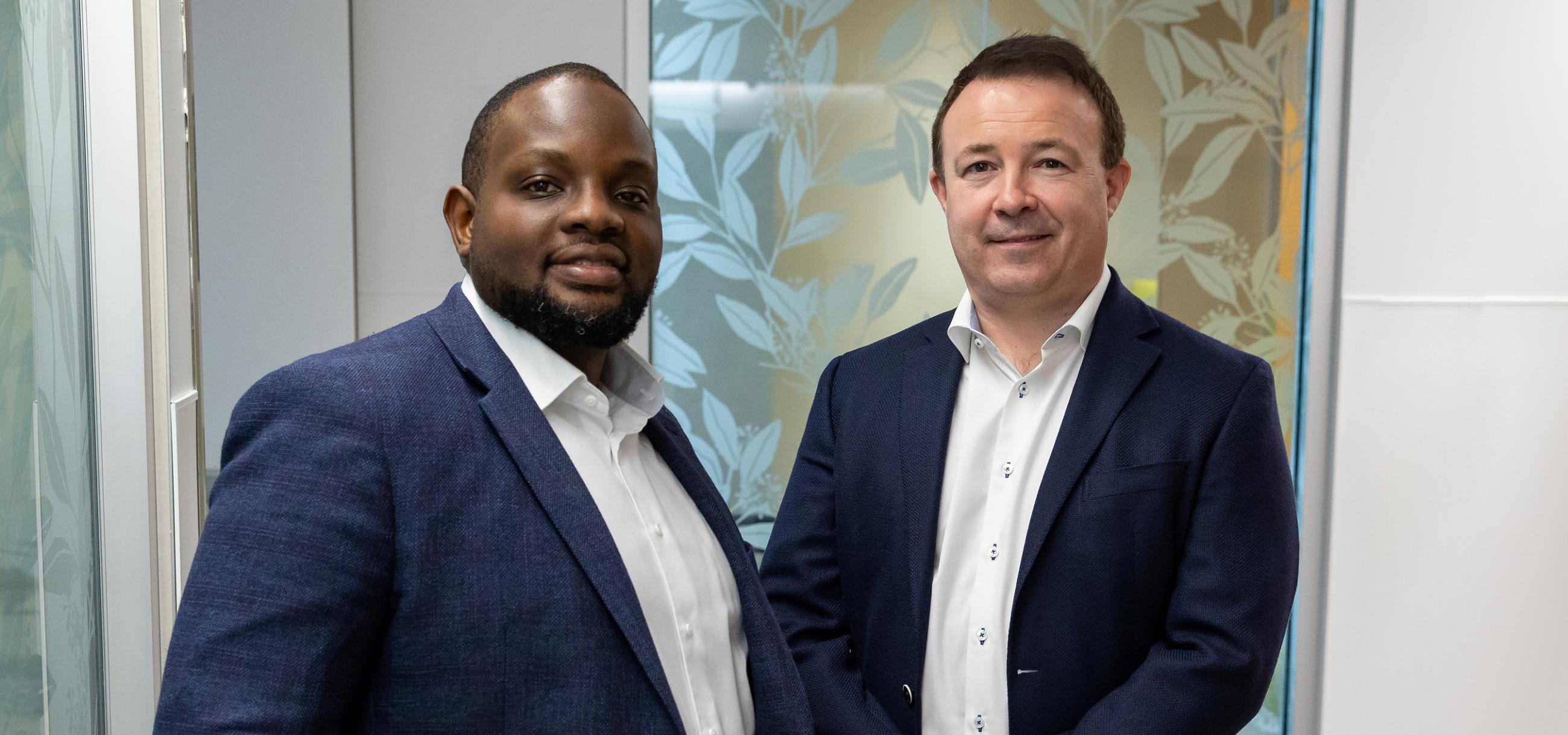
Cancer is a complex disease, with sarcoma representing one of the rarest and most perplexing forms in adults. Yet two brilliant minds, Dr. Abdulazeez Salawu and Dr. Geoffrey Watson, have joined Mount Sinai Hospital’s sarcoma program – the largest multi-disciplinary program in Canada – to advance sarcoma research and treatment.
We had the opportunity to delve into their unique journeys, learn about the highly specialized care for sarcoma patients at Chris Hugh Sharp Cancer Centre and understand their specific areas of research.
What inspired you to pursue a career in oncology?
Geoffrey: My initial interest in medical oncology began in medical school and was really cemented with increased exposure during my clinical rotations. It is a diverse subject area with a wide range of subspecialties, and human relations plays a fundamental role. A cancer diagnosis is life-changing and is associated with significant anxiety and concerns about the future. As a medical oncologist, we are meeting patients at a particularly vulnerable and stressful time in their lives, and we have an opportunity to make a difference, which can be extremely rewarding.
Abdulazeez: Medical oncology is a dynamic field at the forefront of medical research, with continuous advancements in treatments like immunotherapy and targeted therapy that offer oncologists opportunities to participate in cutting-edge science. Having begun my medical career in a developing country, I gained firsthand experience with the consequences of limited treatment access, giving me an appreciation for the clinical benefits of systemic anticancer therapies on patients’ well-being. My journey into oncology started with a Master’s degree in Molecular Medicine, followed by a PhD studying the genomics of soft tissue sarcomas, leading to my residency and fellowship training in medical oncology.
How did you determine that you wanted to specialize in sarcoma?
Geoffrey: During my medical training in Dublin, Ireland, I was exposed to many different cancer types. However when I moved to Toronto, Canada in 2019 for a clinical research fellowship at Princess Margaret Cancer Centre with the Drug Development and Sarcoma Programs, I became increasingly drawn to sarcoma research and treatment. Through this program I have had the privilege of working with international leaders in this field, not only in medical oncology but other disciplines such as surgical oncology and radiation oncology. This multidisciplinary environment inspired me to focus on this rare cancer, which is responsible for less than one percent of all adult cancers. I also treat breast cancer, and while they are both very different specialties, I find them equally rewarding. Breast cancer’s high global prevalence has led to rapidly evolving treatments, while sarcoma’s rarity poses challenges for clinical trial design and new therapy development.
Abdulazeez: My journey into the sarcoma field began through research. I was fortunate to conduct research and recognize the potential for new treatments for this rare disease, which has few effective therapies. This experience led me to pursue additional knowledge by completing a fellowship. I hoped to apply my acquired skills to treat sarcoma patients while also advancing efforts to improve patient outcomes through new and better treatments.
Routine screening tests can be important for early cancer detection. Is there screening for sarcoma?
Abdulazeez: Unfortunately, there are no routine tests for sarcoma, except for those with genetic traits that increase sarcoma risk. Medical awareness of possible symptoms is growing. For example, doctors now recommend evaluating any soft tissue mass over 5cm for sarcoma. People noticing concerning lumps or bumps should see their doctor.
Geoffrey: Currently, there is no screening program for sarcomas, so increasing awareness and education for patients and healthcare professionals is critical. We know patient outcomes improve at specialized centers, so suspected sarcomas should be referred to these centralized centres for optimal management.
Vision for advancements in the Sarcoma Program at Sinai Health.
Geoffrey: The pace of progress in oncology is huge, and the therapeutic landscape across multiple disease sites is constantly evolving. Within our sarcoma program, we have identified a gap in sarcoma patient education compared to other cancers. For example, there are abundant accessible, patient-friendly materials about breast cancer diagnosis and treatment, but limited accurate educational resources for sarcoma patients due to its rarity. To address this gap, we are developing educational videos for newly diagnosed sarcoma patients referred to the Medical Oncology Clinic at Mount Sinai Hospital and University Health Network. We recently received a grant from the American Association of Cancer Education for this project. We hope to demonstrate that earlier education for newly diagnosed sarcoma patients may improve their knowledge and understanding of their disease, reduce psychological distress and ultimately improve the patient experience.
Abdulazeez: I believe emerging biomarkers and novel targeting methods of these sarcoma tumors will improve patient-treatment matching, leading to better outcomes. For example, a study led by Dr. Albiruni Abdul Razak in the Toronto Sarcoma Program, is developing an optimal circulating tumour DNA assay as a liquid biopsy biomarker for molecular residual disease, and this novel test may help identify individual patients who will derive clinical benefit from adjuvant systemic therapy after curative surgery.
To learn more about the Sarcoma Program, visit mountsinai.on.ca.









